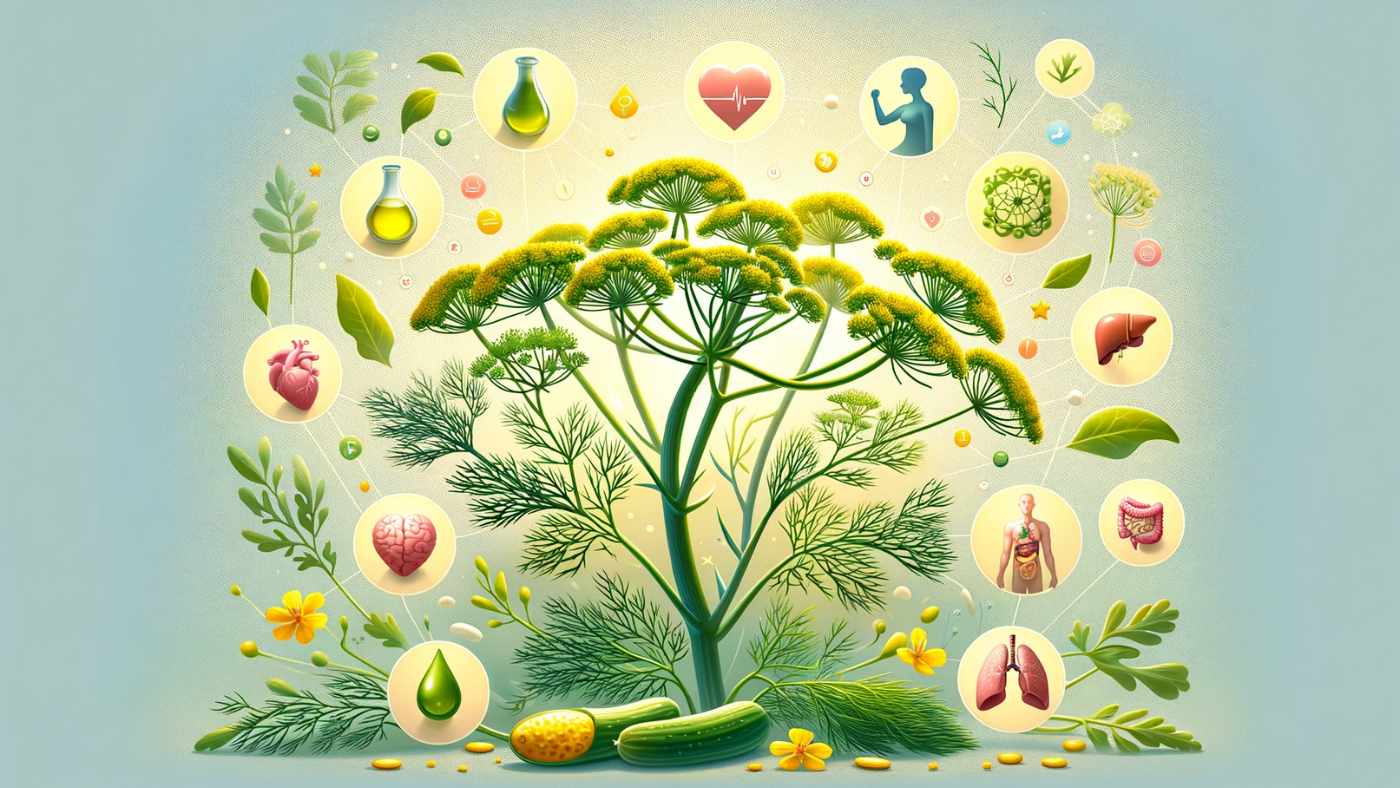Why is Dill Healthy?

Dill, a fragrant herb known scientifically as Anethum graveolens, is not just a culinary delight but also a treasure trove of health benefits. This article delves into the compounds present in dill that contribute to its health-promoting properties.
1. Volatile Oils and Monoterpenes
Dill's unique fragrance and flavor are largely due to its volatile oils, including carvone and limonene. These oils are not only responsible for its distinct aroma but also have health-promoting properties. Carvone, for example, has shown potential in aiding digestion and combating bacterial infections. Limonene, another component, is known for its anti-inflammatory and antioxidant properties. These compounds can help in reducing inflammation and neutralizing harmful free radicals in the body.
2. Flavonoids
Dill is rich in flavonoids like kaempferol and vicenin. These substances are potent antioxidants, which play a crucial role in preventing cellular damage caused by oxidative stress. Oxidative stress is linked to various chronic diseases, including cancer and heart disease. The antioxidant properties of flavonoids in dill contribute to its protective effects against these conditions.
3. Vitamins and Minerals
The herb is a good source of vitamins A and C. Vitamin A is essential for immune function, vision, and cell growth, while Vitamin C is well-known for its immune-boosting and antioxidant functions. Dill also contains small amounts of folate, which is vital for DNA synthesis and repair, and thus contributes to overall cellular health.
In terms of minerals, dill provides calcium and iron. Calcium is crucial for maintaining strong bones and teeth, while iron is essential for the formation of red blood cells and transport of oxygen throughout the body.
4. Dietary Fiber
Dill contains a fair amount of dietary fiber, which is beneficial for digestive health. Fiber aids in maintaining bowel regularity and can help in preventing constipation. Additionally, a diet high in fiber has been associated with a lower risk of developing various chronic diseases, including heart disease and type 2 diabetes.
5. Terpenes
Terpenes such as alpha-phellandrene and beta-phellandrene in dill have shown potential in various health aspects. These compounds have been studied for their anti-cancer, antimicrobial, and anti-inflammatory properties, making dill a potentially valuable herb in the prevention and management of various health conditions.
Final Thoughts
Dill is not just a culinary herb but a potent source of beneficial compounds that contribute to its health-promoting properties. From its volatile oils and flavonoids to its vitamins, minerals, and dietary fiber, each component plays a vital role in promoting health and preventing disease. Incorporating dill into your diet can thus be a flavorful and healthful choice. However, as with any herb or supplement, it's important to use it as part of a balanced diet and consult with a healthcare provider, especially if you have specific health conditions or are taking medications.
